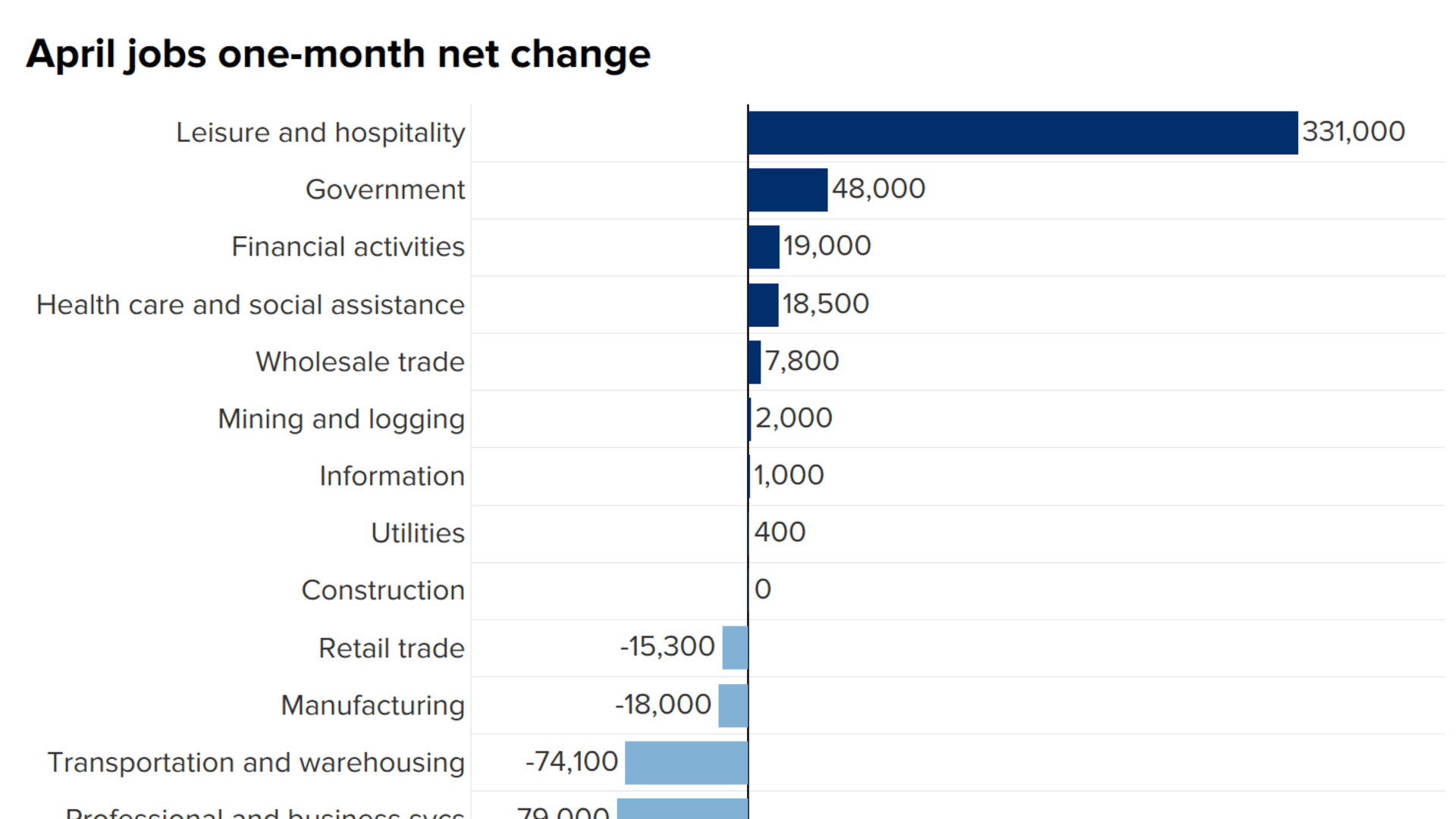
- About 2.7 million people have been unemployed 52 weeks or more, according to the Bureau of Labor Statistics, which published its April jobs report Friday.
- They represent about 29% of the 9.2 million total jobless workers last month.
- The unemployment rate rose to 6.1% in April and the economy added 266,000 jobs.
More than 1 in 4 unemployed Americans have been out of work for over a year, according to Bureau of Labor Statistics data issued Friday.
Long-term joblessness has been rising steadily throughout the Covid pandemic and poses greater financial risks for affected households.
Nearly 2.7 million people were unemployed for 52 weeks or more in April — more than double the amount in February, according to the Bureau.
Get Philly local news, weather forecasts, sports and entertainment stories to your inbox. Sign up for NBC Philadelphia newsletters.

They represent about 29% of the 9.2 million total jobless workers last month. (These data don't include a seasonal adjustment.)
"Ten million Americans are still looking for work, and many of them have been since the beginning of the pandemic," Rep. Don Beyer, D-Va., said Friday.
These statistics are likely an undercount. Certain workers, like those who left the labor force entirely due to pandemic health risks or child-care duties, aren't considered unemployed since they're not actively looking for work.

It's likely that the long-term unemployed are overrepresented in the hardest-hit industries, like leisure and hospitality, according to economists.
Money Report
There are almost 3 million fewer jobs in that sector relative to pre-pandemic levels — accounting for a third of the 8.2 million jobs yet to return. Hiring in the sector, which includes restaurants, bars and hotels, for example, grew by 331,000 last month.
Long-term unemployment
Economists consider workers to be long-term unemployed after at least six months without work.
In April, 4.2 million people were long-term unemployed — 43% of all jobless workers, according to the Bureau of Labor Statistics.
More from Personal Finance:
Eviction ban remains in effect as government appeals ruling
Will your child's school mandate Covid vaccinations?
Here's who would benefit most from student loan forgiveness
That's close to the historical peak hit in the aftermath of the Great Recession: 45.5% in April 2010.
It's an especially dangerous period for households from a financial perspective. Finding a new job becomes more difficult, workers' long-term earnings potential is scarred and the odds of losing a job (if they find one down the road) increase.

The federal government has stepped in to offer income support by extending and raising weekly unemployment benefits. The $1.9 trillion American Rescue Plan, which President Joe Biden signed last month, extends aid through Labor Day and offers a $300 weekly supplement to state benefits.
However, states like Montana and South Carolina are opting to cut off those benefits months ahead of schedule. And not all workers qualify for assistance, despite broader eligibility criteria during the pandemic.
'Steep climb ahead'
The number of Americans out of work for at least a year remains far below the peak hit after the Great Recession.
In April 2010, more than 4.6 million people had been out of work at least 52 weeks, according to the Bureau of Labor Statistics. It took another 20 months for that number to dip below the 4 million mark.

Long-term unemployment may not linger to the same extent this time around, given the pace of vaccinations and businesses re-opening to full capacity.
However, the April jobs report was surprisingly weak, as the U.S. economy added a less-than-expected 266,000. The unemployment rate rose slightly to 6.1% as about 430,000 people rejoined the labor force.
"Labor force participation is at its highest point since last August and the number of people expressing hesitancy about returning to work due to the coronavirus is at its lowest point in the pandemic," U.S. Labor Secretary Marty Walsh said Friday.
"However, the numbers also show we have a steep climb ahead of us," he added.






